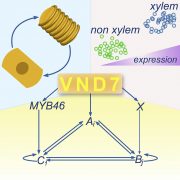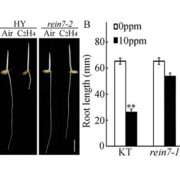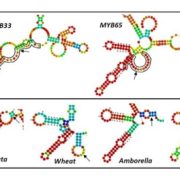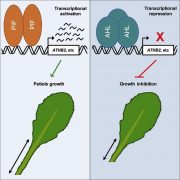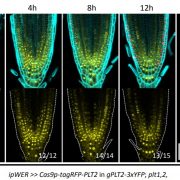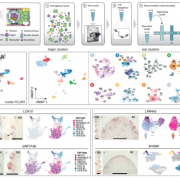Roles of N-terminal acetylation and N-terminal acetyltransferases in plants (J. Exp. Bot.)
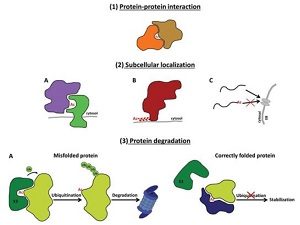 N-terminal acetylation is a common protein modification completed by ribosome-associated N-terminal acetyltransferases (NATs) or plastid-localized NATs. The recent discovery of the plastid-localized NATs upended the traditional model of static, co-translational imprinting of the plant proteome. These dynamic changes, currently not identified in other eukaryotes, could be due to the sessile habit of plants. NTAs have roles in protein-protein interactions, subcellular localization, folding and degradation, among other essential functions. This paper reviews plant NTAs, including their substrate specificity, their roles in plastids and the consequences of acetylation. The paper also discusses the potential roles of NTAs in abiotic and biotic stress responses. (Summary by Julia Miller) J. Exp. Bot. 10.1093/jxb/ery241
N-terminal acetylation is a common protein modification completed by ribosome-associated N-terminal acetyltransferases (NATs) or plastid-localized NATs. The recent discovery of the plastid-localized NATs upended the traditional model of static, co-translational imprinting of the plant proteome. These dynamic changes, currently not identified in other eukaryotes, could be due to the sessile habit of plants. NTAs have roles in protein-protein interactions, subcellular localization, folding and degradation, among other essential functions. This paper reviews plant NTAs, including their substrate specificity, their roles in plastids and the consequences of acetylation. The paper also discusses the potential roles of NTAs in abiotic and biotic stress responses. (Summary by Julia Miller) J. Exp. Bot. 10.1093/jxb/ery241


